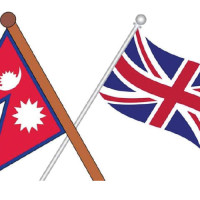- Saturday, 24 May 2025
Creative Diplomacy, Not Coercion, Pays Off
After meeting in Geneva, the U.S. and China have announced a 90-day truce to their trade war. This has offered both nations a space to build trust, continue with negotiation and resolve their outstanding issues. Other nations are also lining up to make fresh trade deals with the USA. American President Donald J. Trump’s hostility with China began with a huge trade deficit of $295 billion. He realised that his nation cannot afford to fight three-front wars: on the economic front with China and its allies, on the military front with Russia over Ukraine and non-state armed actors in West Asia. The rise of multi-polar world order marks the decline of the West’s hegemonic world order. This order is contested now as Asia outpaces it in population, wealth and cutting edge technologies needed for sustainable progress.
Chinese President Xi Jinping says that “nobody wins a trade war” and that “bullying and hegemony only leads to self-isolation.” In the bilateral trade deal, the US has agreed to reduce its 145 percent tariff rate on Chinese goods by 30 per cent while China agreed to reduce its rate on US goods by 10 per cent. Neither side favoured decoupling. President Trump says that he wants to avoid war and reduce defence expenditure. To him, “peace, prosperity and progress” ultimately comes not from “outside military intervention in complex society” or “radical rejection of national heritage but by embracing national traditions and heritage that people love so dearly.” This denotes that the US will be less likely to judge nations by the yardstick of democracy and human rights in international relations.
Balanced trade
Both China and the US have opted for a balanced trade and diplomatic talk but continue to diversify their strategic, political and economic ties. China keeps hold on the supply of rare earth metals after lifting some US exports. America's positioning of comprehensive strategic competition with China aims to deter the integration of Taiwan to China and establish its primacy in the Indo-Pacific region. Neither side prefers war because they know that they can achieve their objectives by diplomacy. Both know that it is absurd to solve its problems by weakening the other nations. Failed states have become a site for global terrorism and insecurity.
The positive payoffs of Sino-US diplomacy are: oil prices surged, share market spiked sharply and the expectation of producers and consumers in global supply chains rose, thus injecting a certain level of predictability of the world economy. The cost of the trade war is $680 billion to them. It has unfolded a situation of Kindleberger-Trap where no big economic power is capable of taking the global leadership essential to bear the costs of sustaining a stable trading system, the UN and other international regimes for a well-governed world order. An element of distrust persists. Russia perceives that the American Indo-Pacific strategy is aimed against China, pitting India and China against each other and split BRICS. Trust might emerge if the US is engaged with China, not its containment.
The unilateralism of the US is slowly changing but not to the desired level of creating a stable world order based on the ethics of multilateralism. Europe, China, Russia, Japan, India, South Africa, Brazil and Indonesia are defending the post-war liberal world order created by the US such as the UN, Bretton Woods and WTO, not weakening the edifices of global governance. They are also the champions of multilateralism but favour the reforms of these institutions to make them representative and accountable, expecting that open markets can ease the growth of the global economy, restore supply chains and deliver global public goods.
China is diversifying its trade relations with the European, Southeast Asian, African and Latin American nations and building links through the modernisation of ports, railways, roads and airports. The Chinese perception of a multi-polar world order is not an anarchic or exceptional one but cooperative. It applies the insights of Confucius to create harmonious global society, security, civilization and progress. This makes its geopolitical conduct different from other great powers. The catching up of the Atlantic nations by China as the manufacturing hub of the world, digital currency, energy, cutting edge technologies and trade spurred its productive forces for huge economic progress. Owing to growth of trade, it has the biggest commercial ships and is engaged in building sea, land and air links worldwide.
There are some positive signs in global politics as the nations are using diplomacy rather than coercion. The de-escalation of the US-China trade war has reduced the scale of tension between the two superpowers. Ukraine-Russia first direct peace talk in Turkey under the heavy pressure of the USA is a step forward although Russian President Vladimir Putin and Ukrainian President Volodymyr Zelenskyy did not participate. Both sides decided to continue to talk and plan for mutual release of 1,000 prisoners of war. Trump said, “Without his meeting with Russian President Putin, the Ukrainian peace process cannot move forward.”
The absence of top leaders of both the USA and Russia in the Istanbul meeting may allow the war of attrition and diplomacy to persist for some time, riveting the geopolitical attention of European nations. The European nations alone cannot end the Russia-Ukraine conflict without the US support. Russia preferred to address the root causes of conflict for a lasting settlement rather than only a 30 day ceasefire and accordingly President Putin has set May 15 peace talk in Turkey with Ukraine without preconditions. But the question of territorial control lingers.
Another bold diplomatic move is the removal of crippling US economic sanctions against the Syrian government led by President Ahmed al Sharara on the request of Turkey and Saudi Arabia. The US has advised the Syrian President to keep good relations with Israel. The Israel-Iran conflict allowed Turkey to consolidate its position in Libya and Syria. Israel fears the geopolitical centrality of Turkey more than Iran, because of its dominant power status in NATO, leverage in Europe and West Asia, suppliers of sophisticated arms and engagement with China, the USA and Russia. But so long as a two-state solution for Israel and Palestine is not fully entrenched, real peace is unlikely to surface.
Still another positive diplomatic trend is the ceasefire of India-Pakistan conflicts and resumption of daily border rituals disrupted by the April 22 terrorist attack on tourists in India-administered Kashmir. Yet without mutual trust and resolution of the Kashmir problem lasting peace and regional cooperation are unlikely to leap forward. Another positive diplomatic trend is the US message of its halt in bombing of the Hauthis in Yemen but found the resolution of the Gaza war difficult for reasons stretching to geopolitical considerations and thus unable to turn it into a “freedom zone.”
The UK, France and Canada demanded Israel to stop the military campaign in Gaza. The US objectives in the Middle East are: to make a deal with Iran to wind down its nuclear aspirations, prevent its proxy groups such as Hamas in Gaza, Hezbollah in Lebanon and Houthis in Yemen indulging in anti-Israeli and anti-American activities and stabilise the security situation in the region. Iran is not averse to talk with the US, resume trade and wants to see the removal of economic sanctions but declared that it will “not renounce its rights” because of the US threats. The nub of the dispute is: Iran wants the enrichment of uranium while the US wants it to give up. President Trump has threatened to face a boycott of its oil sale if remains stubborn.
His foreign policy, however, does not revolve around the Israeli regime and its insistence to attack Iran. President Trump knows his predecessors’ failure in the social engineering of Libya, Afghanistan and Iraq. His visit to Saudi Arabia, United Arab Emirates and Qatar has scaled up their massive investments in the US. Trump openly criticised American neoconservative interventionist attitudes and improved their ties. Qatar has announced plans to purchase Boeing aircraft and GE Aerospace engines worth $1.2 trillion, agreed to invest $10 billion in the Al Udeid Air Base, the largest U.S. military facility in West Asia and a defence purchase of $42 billion.
His visit to Saudi Arabia brought a $600 billion commitment to invest in the U.S. and purchase of $142 billion of American arms. The United Arab Emirates has announced deals of $200 billion with the US, including a $14.5 billion commitment to buy 28 Boeing aircraft. Both sides agreed to set up a huge AI data center in the UAE. These nations, like Turkey, are balancing their ties with strategic partner the USA and largest trading partner China.
The other positive diplomatic trend is the post-Brexit resetting of the EU and the UK. Similar resetting of strategic relationship between the USA and South Africa strained after President Trump accused South African President Cyril Ramaphosa of ”genocide” against white race is likely. The US representative had earlier boycotted the G20 meet in South Africa and criticised the de-dollarisation policy of BRICS of which South Africa is a member. The forthcoming visit of the South African President to the US and meeting with President Trump is expected to normalise relations.
China is the largest creditor and trading partner of the African continent. The ties are characterised by economic interdependence, political trust and the Chinese leverage of soft power through cultural exchange and diplomatic support. Trade volume between the two reached to $ 72 billion. China has pledged to deliver an additional $ 51 billion. Chinese investment in Africa focuses on infrastructure development, modernisation of sea ports, renewable energy, mining, AI and education. The African nations chose their sovereignty over dependence on the USA and European powers on infrastructure, military aid, health, oil exploration, democracy project and military bases and defied their request to dissociate from China’s Belt and Road Initiative (BRI).
Fourteen African nations - Uganda, Morocco, Nigeria, South Africa, Ghana, Ethiopia, Kenya, Tanzania, Algeria, Senegal, Angola, Congo, and Egypt have rejected million dollar conditional aid from the USA, formed new alliances and preferred development cooperation with BRICS nations, Turkey, Qatar, Cuba and South Korea. Burkina Faso has welcomed support from BRICS for its development. The Pan-African sentiment is fermented by decolonisation and national self-determination.
Mutual respect
In the ministerial meeting of 30 Latin American and Caribbean nations in Beijing, Chinese President Xi stated to support these nations in AI, security, energy, ports, connectivity and economic progress. Trade between them stands at $5150billion. He unveiled a new $ 9.18 billion in credit. Under the US pressure, Panama cancelled its BRI projects but Columbia joined BRI as 150th member. Mexico can serve as a new economic corridor for China and it is upgrading Mexican ports and railways and executing a $60 billion railway project with Brazil and Peru.
Recently, President Trump realised that he cannot achieve the goal of Make America Great Again by playing the role of global policeman in far off places which the nation does not know. He supported each sovereign nation's “unique visions and charting its own destiny in its own way” and criticised the Western experts giving lectures to others on how to live and how to govern their own affairs. In a multi-polar world order nations - big and small - prefer partnership based on mutual respect and dignity. It presupposes the US to seek solutions to global problems such as trade, debt, climate change, pandemics, poverty and arms race on the basis of creative diplomacy and collaborative approach with other powers and brace the utility of the UN and other multilateral institutions for rule-based global governance.
(Former Reader at the Department of Political Science, TU, Dahal writes on political and social issues.)
















-original-thumb.jpg)
